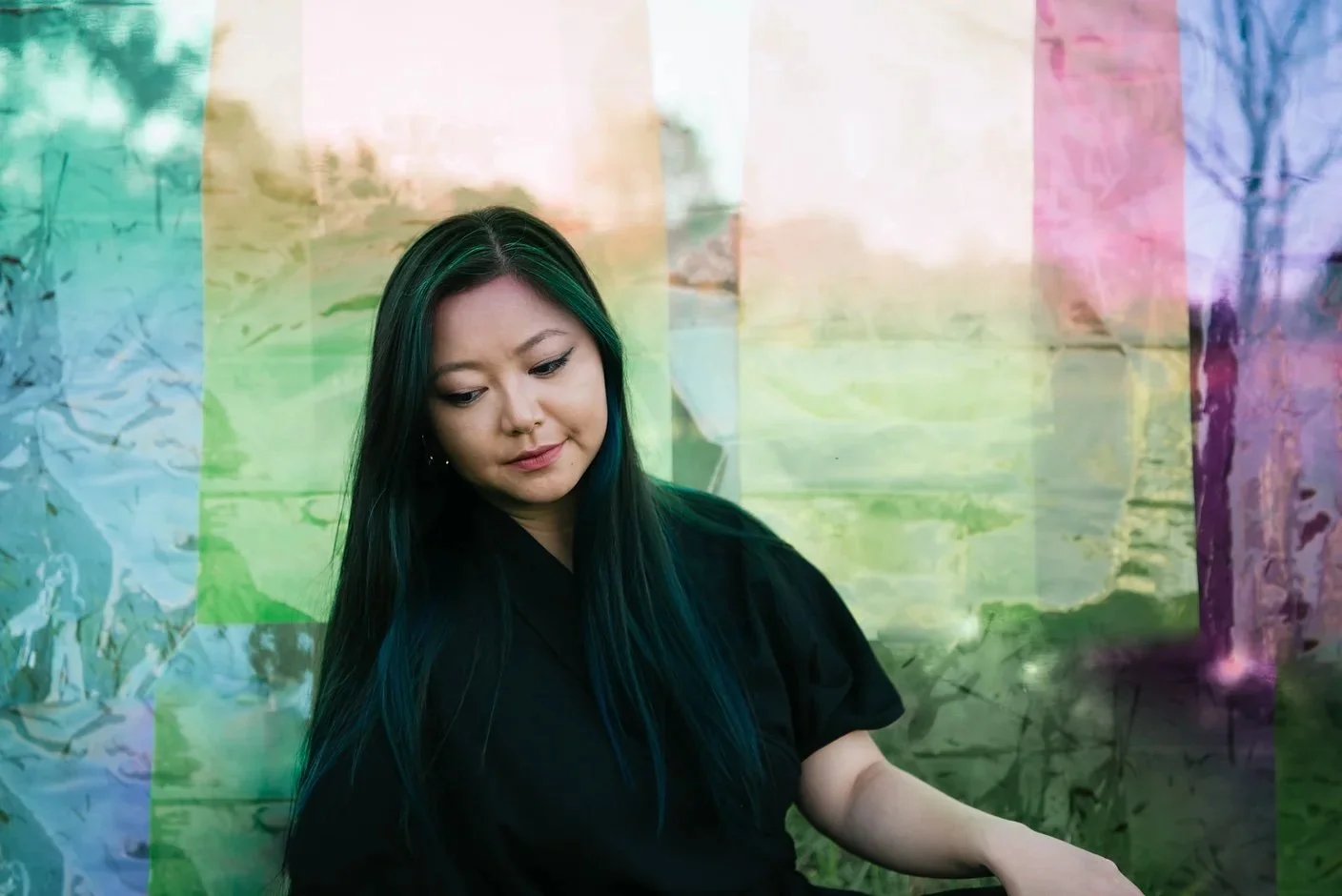Pianist Vicky Chow finds the room for expressiveness in Philip Glass's mesmerizing Études
The New York virtuoso brings unique insight to the composer’s music and methodology
Vicky Chow. Photo by Kaitlin Jane Photography
Music on Main presents Vicky Chow plays Philip Glass at Christ Church Cathedral on March 28
AN ÉTUDE, THE Oxford Dictionary of Musical Terms informs us, is “a piece that generally concentrates on a particular aspect of instrumental or compositional technique, often by repetition of the same figure or feature at various pitches”.
Originally intended as a teaching aid or exercise, the étude has since become a valid concert form, popularized by Franz Liszt’s gymnastic investigations of piano dexterity and given intellectual heft by various collections of 20th-century genius by composers including György Ligeti, Béla Bartók, and Igor Stravinsky.
Most recently, the American minimalist composer Philip Glass has written two books of 10 études, the first six intended as a 50th-birthday gift for the composer and conductor Dennis Russell Davies and the rest as a means of sharpening his own piano technique. Though their auto-pedagogical intent is clear, they also function as a distillation of Glass’s compositional methods—a window into his mind, as it were—and as two satisfying concert suites, full of subtle challenges for the performer and cryptic historical references for the informed listener. As such, they’ve been recorded by a variety of pianists including Glass himself, with one of the best being former Vancouverite Vicky Chow’s Philip Glass: Piano Études, Book 1, on the esteemed Brooklyn-based Canteloupe Music label.
This is not to slight local conductor and pianist Leslie Dala’s rendition of the complete cycle on the Redshift Music imprint; it’s also very much worth hearing. But Chow brings particular insight to Glass’s music and methodology. Since 2009 she’s been the house pianist for New York City’s Bang on a Can contemporary-music organization, which started as a collective of young and mostly minimalistic composers and has since grown to encompass a yearly festival; a touring ensemble, the Bang on a Can All-Stars; and the aforementioned Cantaloupe record label. In that context she’s been able to work alongside Glass—sometimes literally alongside the composer—on several occasions.
“I don’t know him that well, although I’ve played a lot of his earlier work before, like Two Pages or Music in Fifths,” Chow points out in a telephone interview from her New York home. “I first met him at a Bang on a Can marathon years ago, when he joined the All-Stars in a performance of one of his works, and I got to share a keyboard with him. So I sat next to him, and I just remember thinking ‘Okay, I’ll try not to make any mistakes!’ I was quite star-struck. And then a few years later he invited me to perform the Études with him in Winnipeg, at the Winnipeg New Music Festival, and that’s kind of how I first encountered these works. It was an evening shared with Philip himself performing, and also four other pianists, including myself. We each played four études in the evening. He sat at the side of the stage and listened to all of us, and gave us supportive comments after we got off-stage, some comments about how we’d interpreted it. I found that very cool, because I expected him to be in his dressing room when he wasn’t performing, but he sat through the entire thing.
“These études—every single one of them is a gem,” Chow continues. “They go in such different directions, and Book 2 really goes in a different direction than Book 1. Book 1 is specially more concentrated on the technical aspects of the piano, but Book 2 is more cinematic, I find. It’s very romantic, with many more changes harmonically, and sudden cuts.”
When Chow returns to Vancouver for a Music on Main concert at Christ Church Cathedral, she’ll concentrate on Piano Études, Book 1, although she hopes to record the next set of 10 études in the near future. This doesn’t mean that the experience of hearing her perform will be purely an intellectual exercise, however. Glass’s deep understanding of past musical tropes and his own open-hearted nature are evident in these solo pieces, and while their “study” aspect is paramount, they also allow for considerable interpretive freedom. Watching videos of Chow performing Book 1, it’s clear that she’s making spur-of-the-moment decisions about how to articulate particular passages, and it’s fascinating to see and hear how something as simple as a slight variation of pressure on certain notes can change the music’s emotional tenor.
“There’s lots of room for expressiveness, and that’s one of the reasons why I was drawn to working on these pieces,” she confirms. “Up until this point, I had been working on a lot of music that was very constricting, in the sense that was very technical. I was playing Tristan Perich’s Surface Image for a long time, and with that work it’s a 60-minute-long piece where I have to wear a click track in my ear to stay with the electronics. And I was also working on a piece by Michael Gordon, Sonatra, that was also very technically challenging. Both of these works were also repetitive, and there wasn’t room for any kind of expressiveness. I needed something that would give me the freedom to dig into my emotions and kind of get back to the basics of the piano, without any electronics. Nothing too crazy; just something where I could sit down and play and be myself.”
Chow adds that working on Glass’s subtly emotional scores, coupled with some pandemic-related time away from the concert stage, have given her just that. Her innate perfectionism remains, but it’s now finding expression in gentler form.
“I guess you can draw that back to meditation, where your focus is always in the present moment,” she says, responding to the notion that the Glass Études draw on the composer’s Buddhist beliefs. “And you can’t pass anything off: everything is important.”













